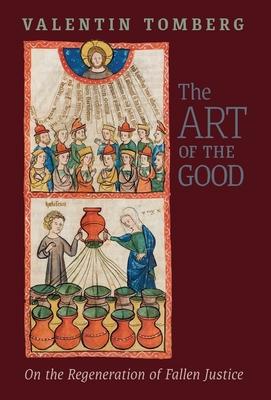Valentin Tomberg was born in St. Petersburg on February 26, 1900. Having been baptized a Protestant, he entered the Greek Orthodox church shortly before 1933, and, in 1945, became a Roman Catholic. In 1938 Tomberg emigrated to the Netherlands and began actively to lecture on Christological topics. At the beginning of 1944 he moved to Cologne, where he was awarded the title of Doctor of Law for the dissertation here published in English for the first time. This dissertation marked an important turning-point in Tomberg's life: humanistic studies he had presented during his thirties are now replaced by a strict orientation towards a Platonic model of knowledge, and a medieval, so-called "realism of universals." Tomberg came to regard the modern path away from natural law (founded upon religion) and toward legal positivism (oriented toward power) as a dismantling of the different levels of law (and at the same time a loss of both the idea and ideal of law)-that is, as a process of degeneration or "fall," which he seeks to reverse in the direction of regeneration. He also proposes a new way of organizing the academic study of law, in which the higher levels of law would be included, and in which access to the idea and the ideal of law would be restored.

The Art of the Good: On the Regeneration of Fallen Justice
Valentin Tomberg was born in St. Petersburg on February 26, 1900. Having been baptized a Protestant, he entered the Greek Orthodox church shortly before 1933, and, in 1945, became a Roman Catholic. In 1938 Tomberg emigrated to the Netherlands and began actively to lecture on Christological topics. At the beginning of 1944 he moved to Cologne, where he was awarded the title of Doctor of Law for the dissertation here published in English for the first time. This dissertation marked an important turning-point in Tomberg's life: humanistic studies he had presented during his thirties are now replaced by a strict orientation towards a Platonic model of knowledge, and a medieval, so-called "realism of universals." Tomberg came to regard the modern path away from natural law (founded upon religion) and toward legal positivism (oriented toward power) as a dismantling of the different levels of law (and at the same time a loss of both the idea and ideal of law)-that is, as a process of degeneration or "fall," which he seeks to reverse in the direction of regeneration. He also proposes a new way of organizing the academic study of law, in which the higher levels of law would be included, and in which access to the idea and the ideal of law would be restored.